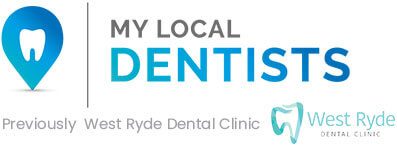The Silent Danger of Untreated Dental Infections

An infected tooth or infection of the gums is known as a dental abscess. Like any infection, a dental abscess can cause many dangers if left untreated.
Most people have their abscessed teeth treated as the pain caused by an abscess can be extremely intense, even to the point of interfering with daily life. Others, however, don’t feel a great deal of pain or choose to suffer through the pain, hoping that the problem will go away on its own.
We know the avoidance strategy is hazardous and urge our patients to learn more about dental infection/abscess threats.
Why can dental infections be deadly?
Most people aren’t aware that an infection in the mouth can spread easily. In worst cases, such an infection can migrate to the brain or other body parts. Once this has happened, the infection becomes extremely dangerous and may even become untreatable. Even something as simple as a cracked tooth can put you at risk if infection spreads to the tooth pulp and beyond. Often, people are unaware that they have a chip or crack in their tooth that can allow bacteria inside. When the chip or crack is identified, the damage is already done.
What are the types of dental abscesses?
There are two main types of oral abscesses– periapical and periodontal abscesses.
- A periapical abscess (tooth abscess). These abscesses occur within the tooth and are usually caused by untreated dental cavities or an injured or broken tooth, and in some cases, they are even caused by prior dental work.
- Periodontal abscess (gum abscess). If food becomes trapped between the gum and tooth, bacteria can build up underneath and in the bone. This can cause an abscess on the gums.
Symptoms of a dental abscess
The symptoms of a dental abscess are usually easy to identify and tend to be similar. It is essential to know that some abscesses are painless. Luckily, painless abscesses often still show identifiable symptoms, such as swollen gums and cheeks. Should the abscess occur in a tooth undergoing root canal treatment, pain may be absent as the nerve is dead.
Here are a few things to look out for:
- Extreme, sharp, or throbbing pain
- Increased pain when pressure or heat is applied to the affected area
- In extreme cases, swollen lymph glands and facial swelling
- Bad breath
- Fever
- Trismus – difficulty opening the mouth
- Insomnia
- A general feeling of unwellness
What health problems do dental abscesses cause?
Let’s turn to a discussion of the different complications associated with these types of infections:
Spread of Infection: Any infection can spread if it isn’t treated. If nothing is done to halt a dental disease, it can spread to nearby teeth, the jaw, the neck, and (in rare cases) the brain.
Sinus Irritation: A tooth infection can trigger sinus irritation because of the close quarters between teeth and sinuses.
Ludwig’s Angina: Infections and inflammation are partners in crime. Ludwig’s Angina occurs when a skin infection spreads into the throat, causing swelling in the air passage. This can lead to trouble speaking, breathing, weakness, and swelling in the neck.
Meningitis: An inflammation of the membranes near the spinal cord and brain; meningitis can be triggered by not getting medical care for a tooth abscess before the infection spreads.
Jaw Infection: Just as a tooth infection can spread from the tooth to soft tissue in the mouth and throat, it’s also possible for the infectious bacteria to travel into the jawbone itself. In this case, swelling and tenderness are usually apparent.
Preventing dental abscesses
Good oral hygiene practices, such as brushing twice daily, flossing once daily, and rinsing with an antibacterial mouthwash, can help prevent tooth abscesses.
Some other measures you can take include:
- Replace your toothbrush every 3-4 months or when the bristles become frayed
- Eliminate sugary snacks and eat only healthy foods
- Consider using an antiseptic or a fluoride mouth rinse to give your teeth additional protection against tooth decay
- Visit your West Ryde dentist for regular check-ups and cleanings.
Treatment at My Local Dentists West Ryde
The goal of treatment is to eliminate the infection. To accomplish this, we may:
- Open up (incise) and drain the abscess.
- Perform a root canal.
- Pull the affected tooth.
- Prescribing antibiotics.
Dental Infection Treatment in West Ryde
At My Local Dentists, our services are 100% personalised for you. All our West Ryde dentists are highly motivated and accredited practitioners with graduate degrees from the University of Sydney. Along with the dentists, the supporting staff are highly dedicated and experienced in ensuring each visit with us is as comfortable as possible.
Promotions for New Patients GAP FREE
General Check-up, Scale and Clean, X-rays and Fluoride treatment (with any health insurance)
Call your West Ryde dentist on (02) 9809 7000 or book your appointment online today!
Visit us at Shop 20 West Ryde Marketplace, 14 Anthony Road in West Ryde.
